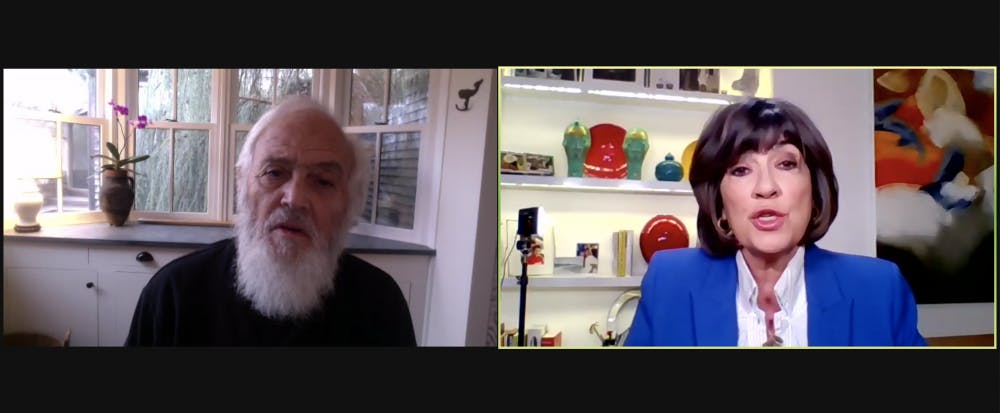At the Watson Institute for International and Public Affairs’s inaugural Kennedy Talks event “Threats to the First Amendment: Social Media, Political Vitriol, and a President Impeached” held Feb. 23., Christiane Amanpour, a renowned journalist, and Martin Garbus, a prominent First Amendment lawyer, discussed the meaning of free speech in America today and citizens’ responsibility to determine the truth in information they consume.
Amanpour began the discussion with reference to the Supreme Court case National Socialist Party of America v. Village of Skokie, which concerned a Neo-Nazi group’s right to hold demonstrations in Skokie, Illinois in 1977. The Court’s ruling in Skokie reversed the decision of the Illinois State Supreme Court, later allowing for the group to march publically.
“I myself was shocked (at the time) that a neo-Nazi group was allowed to publicly display itself and all its hatred in the United States of America,” Amanpour said.
Garbus, who has “represented people like (those) in Skokie,” believes times have changed since the ruling. “This country is now in a very different place,” he said. Now, “there has to be a different analysis” of free speech.
He used to believe that the First Amendment was “pure” and could not be misapplied “by people in power,” Garbus said. “We have to accept that (this idea) is wrong.” The bounds of free speech have often been “decided by the more powerful people,” he added.
Ultimately, he believes the First Amendment should be used to redress power imbalances.
In response to a question from an attendee regarding the role of law and the media in climate change discourse, Amanpour said that the press has fallen “into the trap” of “false-equivalency,” giving equal air-time to both sides of the debate.
The money generated from fossil fuel companies gives them disproportionate input in climate change policy-shaping, Garbus argued. “How can we talk about free speech as being an equal thing when there is such unequal power applying it?” he said. “The truth is a variable subject to money and power.”
Garbus also equated the American view of the First Amendment’s importance to a “religion.”
While Amanpour agreed that the “Constitution and the First Amendment (are treated) like a religion” in the United States, she said that “no other country in the world” has a foundational legal document quite like the U.S. Constitution. People outside of the United States who are under authoritarian rule desire the protections given to freedom of speech in America, she said.
But free speech can also include misinformation, which social media has amplified, according to Amanpour. Online platforms have “exponentially driven false, violent, hate speech ... into a stratospheric situation, which we’re finding very hard to control,” she said. In wake of the spread of hate speech through these mediums, social media companies “might need some extra regulation.”
“Big tech is one of the reasons why we’re having this hugely, exponentially difficult issue (in) hate speech,” Amonpour said.
“These guys get a free pass when they go to Congress,” she added. “They sit there and they bamboozle these elderly Senators with ... tech talk.”
She cited Twitter’s removal of former President Donald Trump’s account in January, following the Capitol insurrection, as an important action against misinformation.
Garbus said he is in favor of stripping companies such as Facebook, Google and Twitter of legal protections that insulate them from being held accountable for instances of misinformation.
Amanpour said she believes that the best way to combat misinformation is having schools teach “social media literacy,” where young kids can “recognize what’s untrue and where to go to find truth.”
For Amanpour, ensuring her reporting is truthful carries significant weight. “My responsibility is to use my massive and powerful platform in order to inform and not to deceive” she said.
Correction: A previous version of this article referred to Martin Garbus as Marcus Garbus. The Herald regrets the error.
Kaitlyn Torres was the senior editor of community for The Brown Daily Herald's 133rd Editorial Board. She previously covered diversity as a University News section editor. In her free time, Kaitlyn enjoys listening to The Arctic Monkeys and going on archaeological digs.





